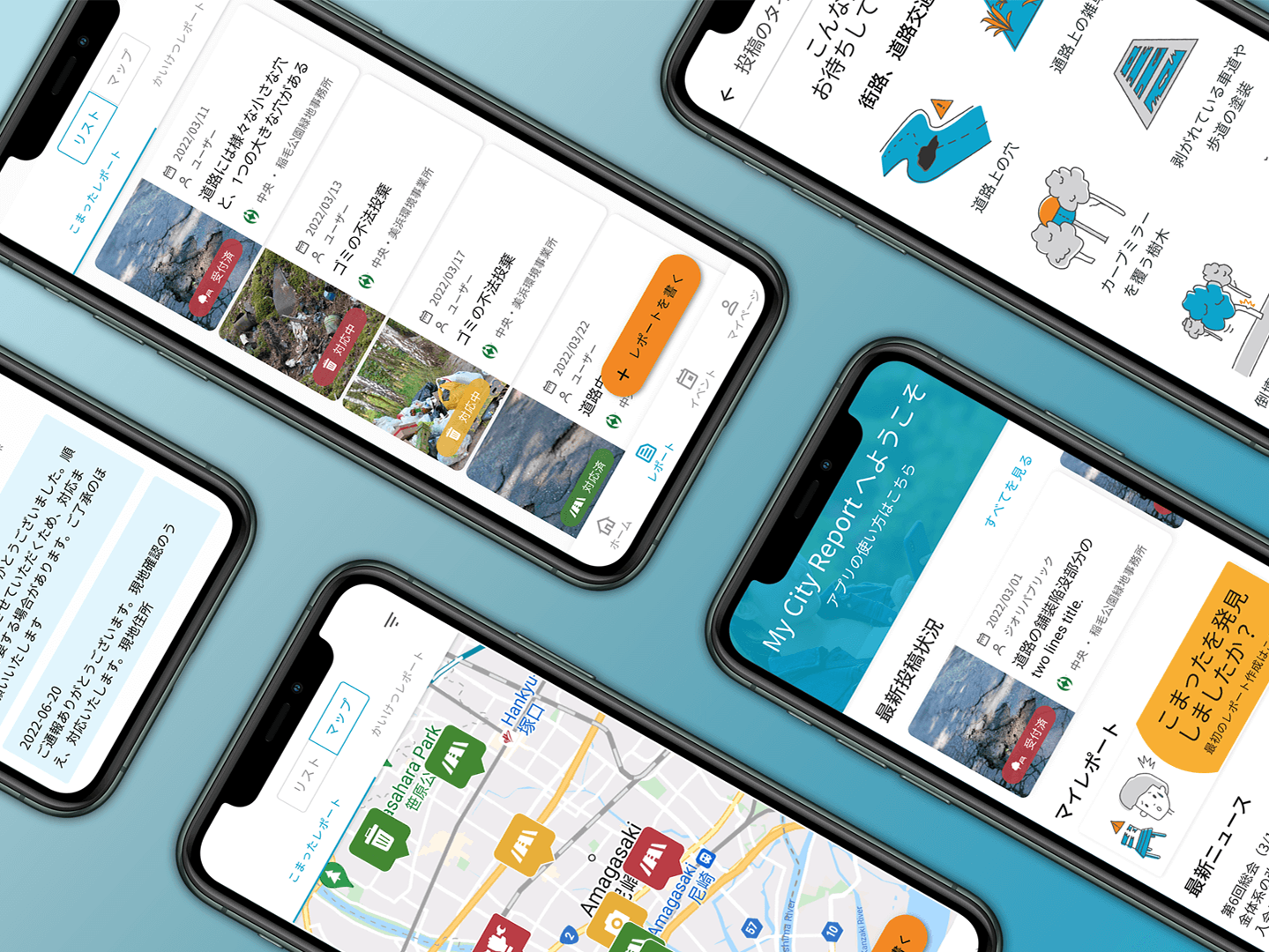Overview
LOBSTA (Location based task manager) is a task and project management solution for on-site customer services and mobile businesses. It adds location information to projects, users and tasks and is based on the open-source Redmine task manager.
At first, LOBSTA was only available as a plugin for Redmine but due to its popularity, the company decided to create a stand-alone mobile client and create a visual identity for the product.
My Role
User research & Analysis · Persona creation · User Interviews · MVP definition · Low/High fidelity wireframes · Prototyping · Illustration, logo and icon design · Design system / styleguide
The challenge
LOBSTA is a task management tool based on Redmine, which is recognized as the largest open-source task management tool worldwide. Redmine is known for its highly complex issue management, a unique task management method. Despite its powerful capabilities, Redmine's complexity makes it unsuitable for mobile use.
The primary challenge was to design an interface that seamlessly integrated complex features such as geolocation tools, issue tracking, project boundaries, and workflow management. The platform had to be intuitive enough for users to navigate with ease, enhancing their productivity and overall experience while also considering the varying levels of digital literacy of the users.
Market and Competitor Analysis
To better understand how LOBSTA can fit into the market of task manager software I studied the current solutions available. I looked at existing task and project management tools, specifically focusing on those that included location-based features.
Through the research, I found that the market for location-based task manager apps is in a nascent stage, with significant potential for growth and development. The rise of remote work and the need for effective coordination of field services has amplified the demand for these kinds of tools. While there are established project management tools and geographic information systems (GIS) available, few products seamlessly integrate these capabilities, leaving a gap that LOBSTA aims to fill.
User Interview with Forest Management Company Hyakumori
Hyakumori Corporation Ltd. is a forest management and administration company with over 10 years of experience in Nishiawakura, Okayama Prefecture, Japan. We had the opportunity to interview the dedicated team at Hyakumori to gain insights into the potential benefits of a mobile app for their operations and identify the key features they consider crucial. These are the key points regarding their current workflow and challenges:
© Hyakumori Corporation Ltd.
Compilation of various information: Their workflow involves managing various information such as forest areas and consumer data (forest owners). They faced challenges in finding a task management system that could effectively link location information with this data. The integration into current systems is also crucial.
Advanced map features: As they work in forests and manage vast areas of land, having advanced map features would allow them to precisely track the locations of different forest plots, machinery, and tasks. This helps in effectively organizing and assigning work based on specific geographic coordinates. It is also important to add custom map layers like overlaying survey data for thinning work or integration of drone-captured imagery.
Offline Work Environment: Since the company's work is primarily done offline in forests with no signal reception, they need a task management tool that could function without internet connectivity. Traditional task management tools that require a browser and internet access are not suitable for their workflow.
Workflow Documentation and Language Standardization: Hyakumori emphasized the importance of documenting tasks and defining clear rules and procedures. They continue to practice writing down tasks and parts that were previously communicated verbally. The company recognizes the need to establish a strong internal language and create templates for different workflows.
Visual Identity Design
The name of the product made it obvious to explore a visual direction that references the red crustaceans. Since the main target for the product is the Japanese market it made for a good opportunity to create a Lobster mascot to give the product a friendly face and make it stand out from other popular project management tools like Trello, Asana etc. which do not use a mascot.
The logo uses round shapes and corners to further emphasize a feeling of an application that is light and easy to use. The use of a reserved color palette and a lot of white space gives the brand a clean and professional look while still retaining a bit of playfulness.
Mobile Client
LOBSTA is based on Redmine, which is a complex and massive web project management tools with endless possibilities of customization. The mobile client is not supposed to offer the same amount of functionality, but rather be a companion to the full version. The main target users of the app are businesses that require to be on site, such as courier and delivery businesses, infrastructure works, home care services etc.
Therefore it is important to provide an interface that lets users update and create their tasks on the go as well as offline functionality.
The base of the mobile app was build with flutter flow, which was also done by me.
Website
The website is the main communication channel for the LOBSTA software. Users can find detailed product information, case studies as well as tutorials. LOBSTA is still in beta phase, so the main CTA is asking users to sign up for the beta or newsletter.
Reflection and outcome
LOBSTA is currently in its early access phase, catering to a select group of clients. The initial feedback from these early adopters has been overwhelmingly positive, particularly regarding the mobile client and its integration with Redmine. However, in order to drive further improvement and introduce new features, it is necessary to expand the user base to facilitate quantitative research.
The existing features within LOBSTA have been tailored to meet the specific requirements of the current client base. As a result, these features may not be universally applicable across different industries. The goal is to strike a balance between providing a robust and versatile solution while accommodating the unique requirements of individual clients.
Through ongoing research and collaboration with clients, LOBSTA will continue to evolve and adapt, ensuring that it remains a powerful and flexible task management tool that can be tailored to suit the needs of various industries.


